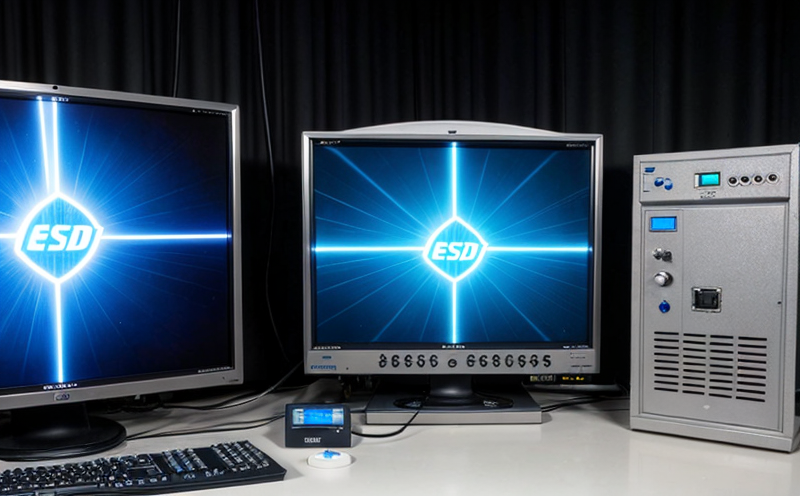IEC 61000-4-28 Variations in Power Frequency Testing
The IEC 61000-4-28 standard focuses on testing the impact of variations in power frequency on semiconductor and microchip devices. This type of testing is critical for ensuring that electronic components operate reliably under varying environmental conditions, particularly those found in industrial or commercial settings.
Variations in power frequency can lead to performance degradation or even failure of sensitive electronic circuits within semiconductors and microchips. Compliance with this standard helps manufacturers ensure their products meet global quality and safety requirements before they enter the market.
The IEC 61000-4 series deals specifically with electromagnetic compatibility (EMC) issues, which include variations in power frequency as one of its key concerns. By adhering to these standards during product development stages, companies can preemptively address potential issues that might arise due to environmental factors such as fluctuations in voltage and current.
During the testing process, specimens are subjected to controlled changes in AC supply frequencies over specified ranges while monitoring their performance characteristics like leakage current, power consumption, and signal integrity. The aim is not only to identify any adverse effects but also to characterize how well devices handle such conditions so that appropriate countermeasures can be implemented.
This testing procedure ensures that all components within a semiconductor or microchip assembly function correctly across different operating environments. It plays an essential role in safeguarding against failures caused by variations in power frequency, thereby enhancing product longevity and reliability.
- Guarantees adherence to international standards
- Ensures consistent performance across various environmental conditions
- Identifies potential weaknesses early on in the design phase
- Promotes robustness against external interference
Applied Standards
The primary standard used for this type of testing is IEC 61000-4-28, which specifies procedures and criteria for evaluating the effects of variations in power frequency on electronic equipment. This includes both digital integrated circuits (ICs) as well as analog circuits contained within semiconductor devices.
Other relevant standards that may apply depending upon specific application requirements could include IEC 61000-4 series covering EMC in general, along with individual country-specific regulations such as those enforced by Underwriters Laboratories (UL) or Canadian Standards Association (CSA).
These guidelines provide a framework for conducting thorough and accurate tests aimed at identifying any susceptibility to frequency variations early enough so that corrective actions can be taken.
Scope and Methodology
The scope of IEC 61000-4-28 Variations in Power Frequency Testing encompasses the evaluation of semiconductor and microchip devices under conditions where there are changes in the fundamental frequency of alternating current (AC). This can range from deviations as small as ±1% up to ±5%, depending upon the specific test requirements.
The methodology involves exposing the components or assemblies to these frequency variations while measuring various parameters such as input power, output voltage, current consumption, and signal integrity. Signal integrity checks ensure that data transmission remains clear and error-free despite any fluctuations in power supply.
For accurate results, it is crucial to maintain strict control over environmental variables like temperature and humidity levels throughout the testing process. Additionally, precise measurement instruments calibrated according to international standards are necessary for obtaining reliable data.
Why Choose This Test
- Ensures compliance with international regulations and industry best practices
- Reduces risk of product failure due to environmental factors
- Promotes improved reliability and durability of semiconductor products
- Aids in early detection of design flaws that could affect performance
- Facilitates smoother integration into existing systems without compatibility issues
Variations in power frequency testing is particularly important for ensuring the robustness and longevity of semiconductor and microchip products. By subjecting these components to realistic environmental conditions during development, manufacturers can catch potential problems early on, allowing them to make necessary adjustments before mass production begins.





